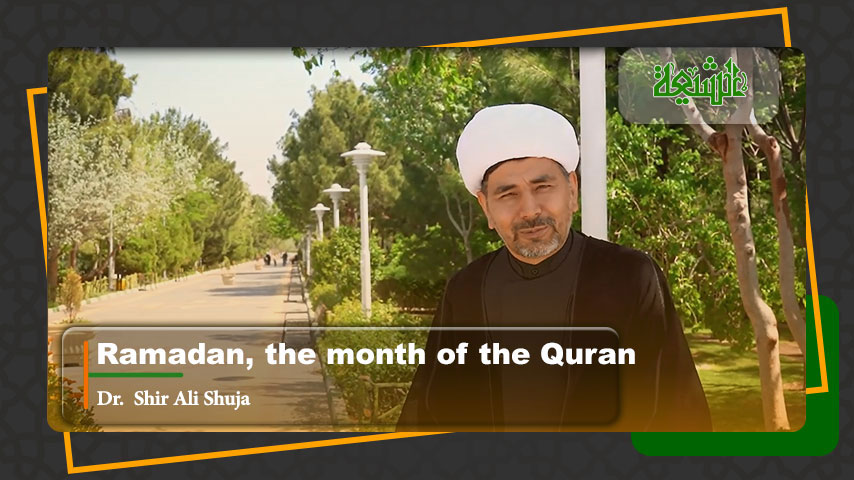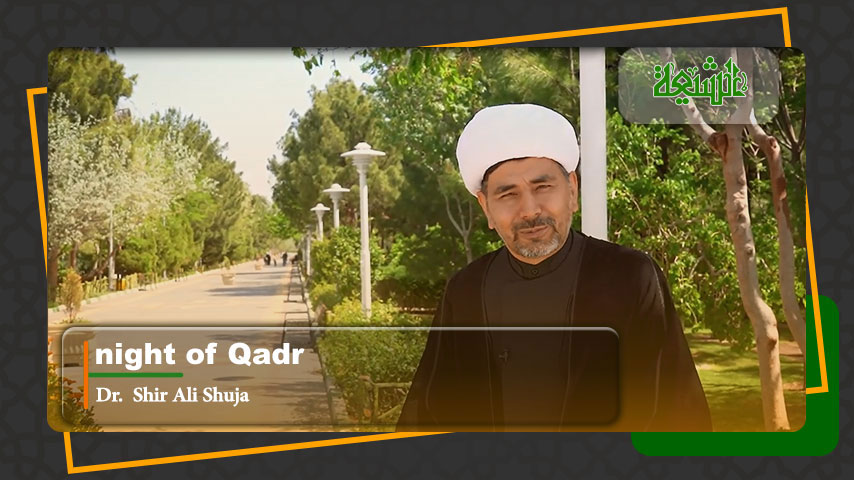The article explores the profound teachings of Islam regarding peace, harmony, and coexistence, highlighting the religion’s commitment to fostering understanding among diverse cultures and beliefs. At its core, Islam advocates for compassion, justice, and the sanctity of life, principles that resonate with the universal quest for peace. This article delves into the foundational texts of the Quran and the Hadith, emphasizing the importance of peaceful relations both within communities and between nations. It also examines historical and contemporary examples of Islamic contributions to global peace initiatives, illustrating how the teachings of Islam can serve as a powerful framework for promoting tolerance and resolving conflicts in an increasingly interconnected world. Through this exploration, the article aims to dispel misconceptions about Islam and illustrate its vital role in the ongoing dialogue for a more peaceful global society.
Conceptual Analysis
For a better understanding of the topic under discussion, it is pertinent to give definitions of some important and related terms.
1: Peace
The Arabic term “Sulh” is literally translated in English as peace, peacemaking, compromise, serenity, conciliation, reconciliation, truce, conveyance, composition, settlement, and calmness[1]. However, in a technical term, the term “Peace” is defined as a situation or a period in which there is no war or violence in a country; or an area, the state of being calm or quiet; or the state of living in friendship with somebody without arguing[2].
Interestingly, it is pertinent to note that the word “Sulh” together with its derivates is mentioned one hundred and eighty times in fifty-four Chapters [Surahs] of the Qur’an[3] , and in which some of these occurrences are used to mean “peace” or “reconciliation” or “peacemaking”. For instance, the Qur’an says: “There is no good in much of their secret talks, excepting him who enjoins charity or what is right or reconciliation between people…[4].” In another verse: “If two groups of the faithful fight one another, make peace between them…[5]“
Meanwhile, the Arabic term “Silm” or “Salaam” are interchangeably used in the Qur’an to mean “peace”, “reconciliation” or “peacemaking” and this is used in another verse: “If they incline toward peace, then you [too] incline toward it, and put your trust in Allah…[6]“
Therefore, from the above definitions of peace, it is obvious that the term “peace” could either be an individual or social peace. However, this paper focuses mainly on the social aspects of peace, which is concerned with the international relations among the nations of the world.
The world (or global) peace, on the other hand, is defined as the concept of an ideal state of happiness, freedom, and peace within and among all people and nations on earth. This idea of world non-violence is one motivation for people and nations to willingly cooperate, either voluntarily or by virtue of a system of governance that objects it will be solved by love and peace[7].
In other words, a world (or global) peace is considered an ideal situation in which all the people of the world work together to avoid war and violence and the world becomes a better place to live in. However, it is necessary to state that the proposed concept of global peace is not only restricted to the absence of war, violence, and insecurity among the nations of the world; rather it encompasses a relationship that is built on equity, justice, mutual cooperation, sovereignty, development and progress of the people and nations.
2: Islam
The term ‘Islam’ is derived from an Arabic root S-L-M; which according to (Hans Wehr, 1976) literally means submission; resignation, and reconciliation (to the will of God)[8]. However, in a technical term, according to (Ibn Manzour) and (Azhari), Islam in a religious context means a display of humbleness and obedience to the message of the Prophet[9]. In other words, the term ‘Islam’ is a religion of total and complete submission to the will and dictates of God; the Almighty, and the directives of His Apostle; Hazrat Muhammad son of Abdullah. Thus, the adherents and followers of Islam are therefore referred to as Muslims (i.e., one who surrenders to the will of God).
Islam and Peaceful Coexistence
Islam however, has given special attention to the security of life and a peaceful coexistence with the adherents of other religions in the last fourteen centuries ago[10]. It also emphasizes the ideals of a peace treaty and reconciliation among the warring parties and the necessity of abiding strictly to the mutual agreement in this regard[11]. Similarly, it strictly prohibits the act of breaking a peace treaty unjustifiably[12]. The peace treaties of the noble Messenger of God are believed to be one of the most significant aspects of his biography[13].
Thus, upon his arrival in Medina, the very first thing he did after the formation of an Islamic state was to initiate relations with Arab tribes. Thus, he signed various diplomatic treaties with several tribes/groups of Arabia (the Pagans, the Christians, and the Jews) and these had indeed contributed positively to the attainment of a peaceful and secured society in which cooperation and mutual understanding with the adherents of other religions are the watchwords.
Without any doubt, the ultimate goal of Islam in signing these treaties with non-Muslims was the attainment of peace and tranquility. It is in light of this that the noble Messenger of God (PBUHH) established a peaceful state at Madina, where all citizens were in a state of peaceful co-existence and mutual cooperation with one another irrespective of the differences in their cultures and religions. It is worth mentioning that the Messenger of Allah (PBUHH) respected and abided by the contents of those peace treaties until they broke them.
Meanwhile, Islam contrary to the allegation and propaganda on the media that it is a terrorist religion or a religion that condones terrorism, Islam is indeed a religion of peace, liberty, love, affection, generosity, mutual understanding, and respect among Muslims and the adherents of other religions. Thus, Muslims consequently are peaceful and peace-loving individuals. Because of this, Islam and terrorism are two opposing views, which can never merge together. In other words, Islam is not terrorism and terrorism has nothing to do with Islam. Likewise, Muslims are not terrorists while terrorists are not Muslims. However, those terrorists who in the name of Islam kill innocent lives, destroy individual and public properties, and cause insecurity in the land are in actual fact not Muslims; they are indeed outside the fold of Islam, which is synonymous with peace, liberty, and justice.
Interestingly, a recent study made by the United Nations body; UNESCO partnered with the International Peace Foundation declared Islam as the most peaceful religion in the world after six months of study of the world religions. According to the head of comparative studies wing of the International Peace Foundation; Robert McGee, he declared in a press conference thus: “After six months of rigorous study and analysis, we have concluded that Islam is the most peaceful religion[14].” Similarly, about the terror acts perpetrated in the name of Islam, the UNESCO official denied that it had nothing to do with Islam: “Terror has no religion”, he said, “Islam means peace.[15]”
Peace and security have been a concern of all human societies. Over the decades, several theories and policies have been proposed by stakeholders locally and internationally on how to achieve world peace. On the contrary, Islam considers a peaceful life as one of the great and unequal blessings of God through which success in worldly affairs as well as the affairs of the hereafter is guaranteed.
It is on this basis; therefore, that one of the ultimate goals of the Islamic Republic of Iran is the restoration and maintenance of peace and security among the nations of the world. In an address of the late founder of the Islamic Revolution in Iran; Imam Khomeini, he said: “The ultimate goals of Islamic teachings are peaceful co-existence worldwide which we hope will be achieved by the expedited return of Mahdi; the promise one at the end of the time (May our souls be sacrificed for him) as well as pursuit of human perfection and eternal happiness- may God grant everyone[16].”
Conclusion
Islam’s perspective on global peace is grounded in principles of justice, compassion, and mutual respect. The Quran and the Prophet Muhammad’s example emphasize peace as a central value, promoting forgiveness, patience, and reconciliation over hostility. Islam teaches that peace is linked to justice, advocating for fair treatment and protection of human rights as foundations for harmonious coexistence. It encourages interfaith dialogue, social responsibility, and charity to address societal inequalities and reduce conflict. Islam views all humanity as a single global community, urging Muslims to foster understanding, uphold ethical standards, and pursue peace, making conflict a last resort only in defense.
References
[1] . Hans Wehr. (1976). A dictionary of Modern Written Arabic (Fourth edition), p. 522; Baalbaki Rohi, (2010), Al-Mawrid: A Modern Arabic-English dictionary (Nineteenth edition), p. 699.
[2] . Hornby A. S. (2000). Oxford Advanced Learner’s Dictionary of current English (Sixth edition), pp. 857-858.
[3] . Salihi, Majid. (1395 SH). Ma’nā -i- vāzhe ‘Ṣulḥ’ va mushtaqān ān dar Qur’an, Mishkat Journal, Volume 35, Number 2, Series 131, p. 85.
[4]. Qur’an 4: 114.
[5] . Qur’an 49: 9
[6] . Qur’an 8: 61.
[7] . https://en.wikipedia.org/wiki/World_peace
[8] . Hans Wehr. (1976). A dictionary of Modern Written Arabic (Fourth edition), p. 426.
[9] . Ibn Manzour. (1993). Lisan al-‘Arab (Third edition), vol. 12, p. 294; Azhari, (2000), Tahzib al-Lughah (First edition), vol. 12, p. 313.
[10] . Qur’an 3: 64.
[11] . Qur’an 49: 9.
[12] . Qur’an 17: 34.
[13] . Muhaimini, Abdul. (2014). Treaties of the Prophet Muhammad (PBUH): A Study of the Modern Approaches in Sirah Writing, Tahdib al-Afkar, pp. 1 and 8.
[14] . http://www.juntakareporter.com/world/unesco-declares-islam-as-the-most-peaceful-religion-of-the-world/
[15] . Ibid
[16] . Khomeini, Ruhullah. (2007). Sahifeh ye Imam (Second edition), vol. 18, p. 83.
















